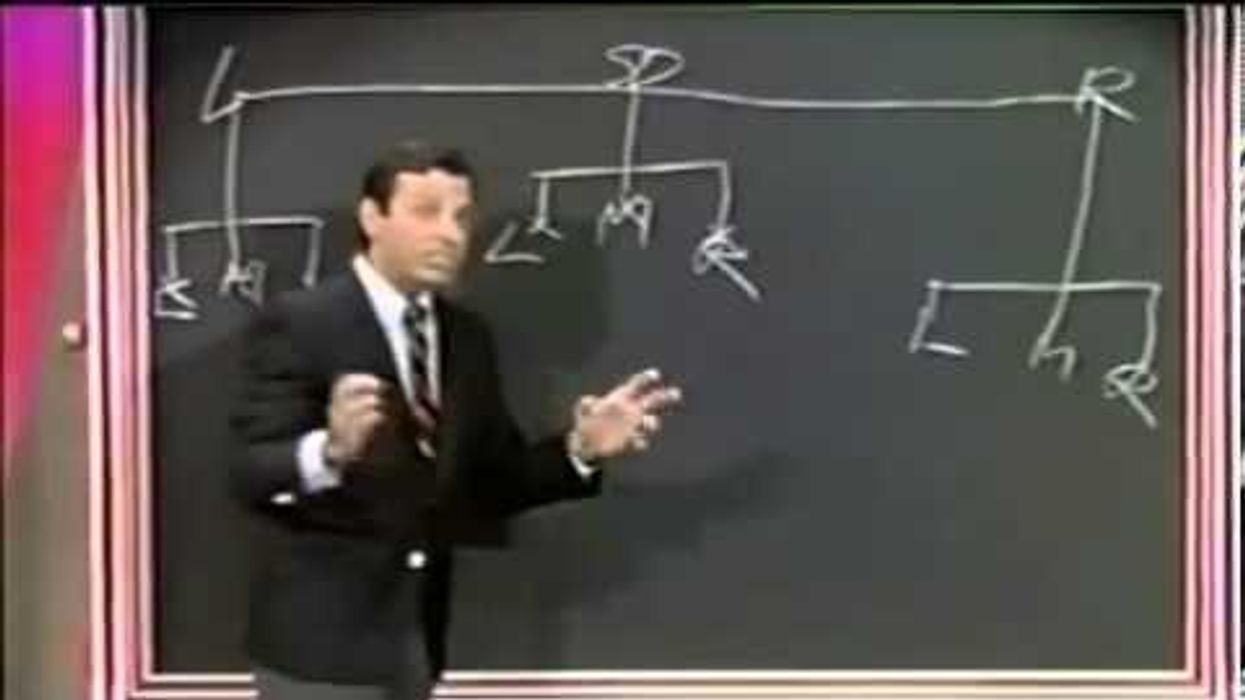Mort Sahl arrived on the comedy scene in the 1950s, well before his time, using comedy to express uncomfortable truths about politicians, society and his audiences.
He died Tuesday at his home in Mill Valley, Calif., at the age of 94.
He made us laugh at the absurdity of what he saw as a political circus. He called attention to the misinformation and the posturing amongst politicians. He understood like few others the low level of discourse and understanding that politicians exhibited on a daily basis.
He saw it all as a charade: the dishonesty, misleading statements and ethical lapses. He saw the hypocrisy and called out politicians for their lack of accountability, for the promises unkept and for the disregard for their less powerful constituents.
In 1955 Sahl recorded "At Sunset," which has been added to the National Registry at the Library of Congress. As noted in the archive: "Mort Sahl ventured very far from the clownish mother-in-law joke or such vaudevillian patter." His groundbreaking album is described as "a well-pun pastiche of sophisticated ideas, an understated celebration of free-speech, and a tightly packed time capsule of mid-fifties lore."
In the more naive and peaceful 1950s, Sahl was a shock to the system and laid the groundwork for comedians of the future like Lenny Bruce, Dick Gregory, Jonathan Winters, Richard Pryor, George Carlin, Jon Stewart and Stephen Colbert.
In a society awash in social and political dysfunction, in which reality in many ways differs from the ideals of our Founding Fathers, comedy is still used to confront us and to effectively to open our minds and, yes, to make us laugh.
Sahl's one-liners from the '50s survive the test of time:
"There's a danger our fiscal bankruptcy might overtake our moral bankruptcy."
"If you maintain a consistent political position long enough, you'll eventually be accused of treason."
Sahl was an equal opportunity offender being equally offensive at times to those on the left as to those on the right.
Surely conservatives are offended by: "Liberals feel unworthy of their possessions. Conservatives feel they deserve everything they've stolen."
And progressives by: "Now that Obama is at war in a third country, does that mean he has to give back his Nobel Peace Prize?"
Comedy certainly can separate and divide us, as we have seen through many examples in the news today. Dave Chappelle's jokes about the LGBTQ community in his recent Netflix comedy special was deeply offensive and exemplified the potential for comedy to feed hate and to divide us as Americans.
At its best comedy can engage and inform and encourage us to unite as Americans.
Stewart, the satirist made famous as host of "The Daily Show", was the Mort Sahl of his time, with his form of no-holds-barred satire on his generation. Stewart famously said, "I'm not going to censor myself to comfort your ignorance." A strong statement indeed that in many ways embodies Sahl's work.
Mort Sahl famously joked through all the criticism bestowed upon him that "My life needs editing." Dead at the age of 94, but his legacy lives on. Relive the satirical uniqueness of Mort Sahl as he explains politics in 1967 and decide for yourself if his life needs editing.




















Trump & Hegseth gave Mark Kelly a huge 2028 gift